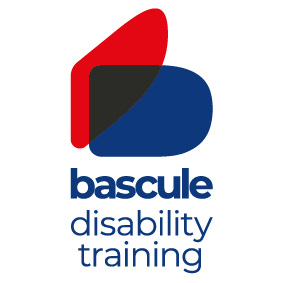Case in Point- When social exclusion amounts to harassment

When we think about disability harassment cases, most of us think of offensive remarks, statements, or physical behaviours, but the truth is harassment can take on numerous, less obvious forms than simple insults, physical actions or offensive language.
Under the Equality Act 2010, the general definition of harassment is “unwanted conduct related to a relevant protected characteristic, which has the purpose or effect of violating an individual’s dignity or creating an intimidating, hostile, degrading, humiliating or offensive environment for that individual.”
Now, many different behaviours can fall into that category, and this has undoubtedly been proven in a recent tribunal case, Mr D Cooper v Sainsbury’s Supermarkets Ltd & Anor (2024), where it was found that leaving a particular member of staff out of a social media post was ruled as disability harassment. The tribunal ultimately found that the exclusion of the staff member from a celebratory post amounted to discrimination, even if the action of exclusion was not intended to be a malicious statement.
The case
As a dedicated store manager, Mr Cooper had worked for Sainsbury’s for over 30 years. However, it was in 2022 that he began to experience severe anxiety, which, under the Equality Act 2010, is recognised as a disability.
During a period when Cooper was on leave due to his anxiety, a post was circulated on LinkedIn and Yammer and shared with internal colleagues, which celebrated International Men’s Day. The post, issued by a regional director, showcased several male staff members and celebrated their work, but Mr Cooper wasn’t mentioned in any way. Feeling isolated and anxious about his absence already, the exclusion then caused him to feel “excluded, humiliated, and violated.”
The tribunal dismissed some of the other claims he raised (he also filed for unfair dismissal as a result of the action), but it was agreed that the exclusion from the social media post had amounted to both harassment and discrimination arising from ‘unfavourable treatment because of something arising in consequence of disability’.
Because Mr Cooper’s absence was a result of his anxiety, the tribunal found that there was a clear connection between the exclusion and his disability, making the action harassment under the Equality Act.
It was stated that even though the action may appear as a harmless oversight, these behaviours are still a breach of equality law as they send the wrong message to a vulnerable employee.
Why this case is important
What’s striking about this case is that it wasn’t about insults or overt mistreatment. No one said anything offensive or acted with deliberate unfairness, but failing to acknowledge the services as a result of his absence, caused by disability, resulted in feelings of exclusion from Mr Cooper. It was the absence of acknowledgement that caused harm.
For employers, this case is a wake-up call to think carefully about how inclusion is practised day to day. Celebrating employees is a good thing, but employers should be mindful and considerate, acting with awareness and empathy, especially when someone is off work because of illness or disability.
What can Employers learn from the case?
Whilst at first glance the incident may seem innocent, it’s worth remembering that a company is very much responsible for its internal and external communications. Ideally, every staff member’s effort should be recognised, and if one member is absent due to a disability, they should certainly not be excluded.
It’s also imperative that employers, and indeed senior staff members, understand that mental health issues and impairments such as depression, anxiety etc, are treated as seriously as issues with physical health. Still, very often, it is not the case.
As employers, keeping in touch, checking in and making staff members feel they are still a part of a team can make a huge difference, and even positively impact their ability to return to work. If stability and support had been felt instead of humiliation and violation, the situation would not have happened. Instead, it was as if, despite being a reliable worker for 30 years, Mr Cooper was forgotten.
Finally, employers should note that sometimes, what might appear to be a simple PR activity can often have HR implications, especially if it involves staff members in any way.
What could have been done?
Having an empathetic, understanding, and disability-aware workplace community could have made a big difference in this case. It is, after all, the responsibility of senior leaders to ensure staff absences do not result in exclusion, and this isn’t simply about processes and informal policies; it’s about having a thought for someone and understanding how gestures may be interpreted.
A focus on managerial training, gaining a better understanding of disability (specifically mental health), and the general development of a more empathetic workforce could have made someone in the team more conscious of the implications on those left out of that post, before it was released.
A Final Thought
Cooper v Sainsbury’s is a reminder that disability awareness must be present at all times, in all workplace actions and activities. It is not simply something that needs to be practised during processes like recruitment procedures, or when redesigning a physical space or as a one-off consideration. In this case, the staff member should have been aware of the implications of excluding someone absent due to a disability, which, in this instance, crossed over into harassment.
If there’s one takeaway for leaders and business owners, it is that we should always be aware, not only of who is in front of us, but also who is not. When celebrating the work and achievements of our teams, we should also consider who we are leaving out and, most importantly, why.



